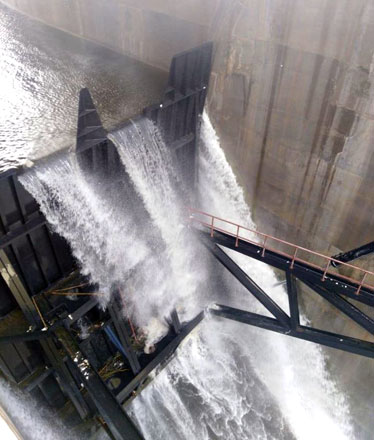AMMAN — The Ministry of Water and Irrigation on Sunday announced that King Talal Dam has overflowed after reaching its full water storage capacity of 75 million cubic metres (mcm) for the first time this year.
The ministry cautioned citizens near the Jordan Valley and King Abdullah Canal against going near low-lying areas and called on related entities to take necessary precautions.
The public is invited to track round-the-clock updates on all dams and alerts of expected overflows, according to a ministry statement.
The Kingdom’s major dams now hold 52 per cent of their total storage capacity of 336.4mcm, Water Minister Raed Abul Saud said.
Recent rainfall channelled over 175mcm of water into the country’s major dams, increasing storage at the dams to 336.4mcm, he noted, adding that the cumulative rainfall since the beginning of the season has reached around 9,404 billion cubic metres, constituting 114.7 per cent of the annual average of around 8.1 billion cubic metres.
Water Ministry Spokesperson Omar Salameh said that the ministry has taken “all precautionary measures” against dams overflowing, including cleaning waterways, since the early beginning of the wet season, Petra added.
Salameh stressed that King Talal Dam’s latest overflow will help farmers irrigate their land, highlighting that water from the dam was flowing at a speed of over 15 cubic metres per second.
